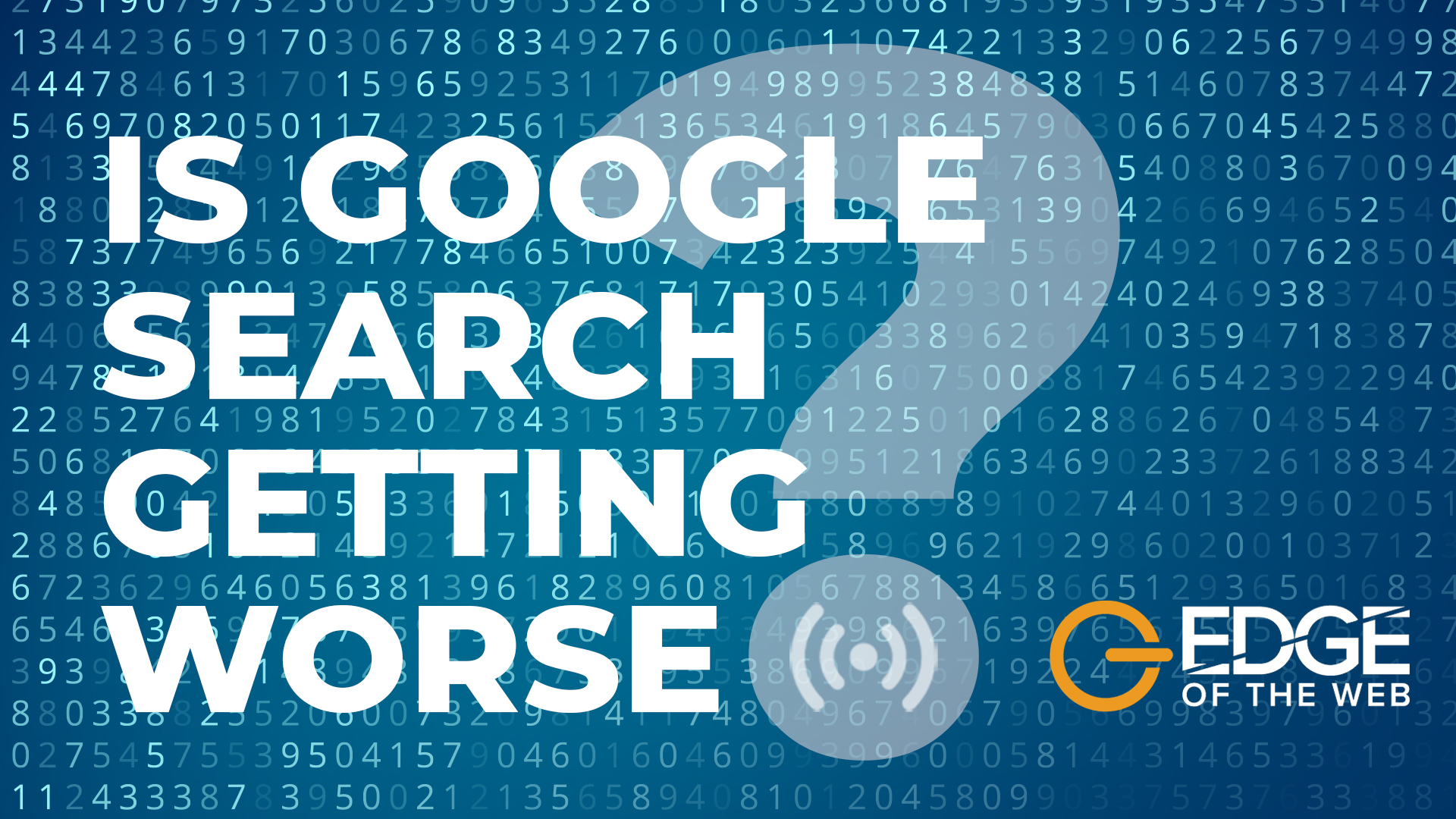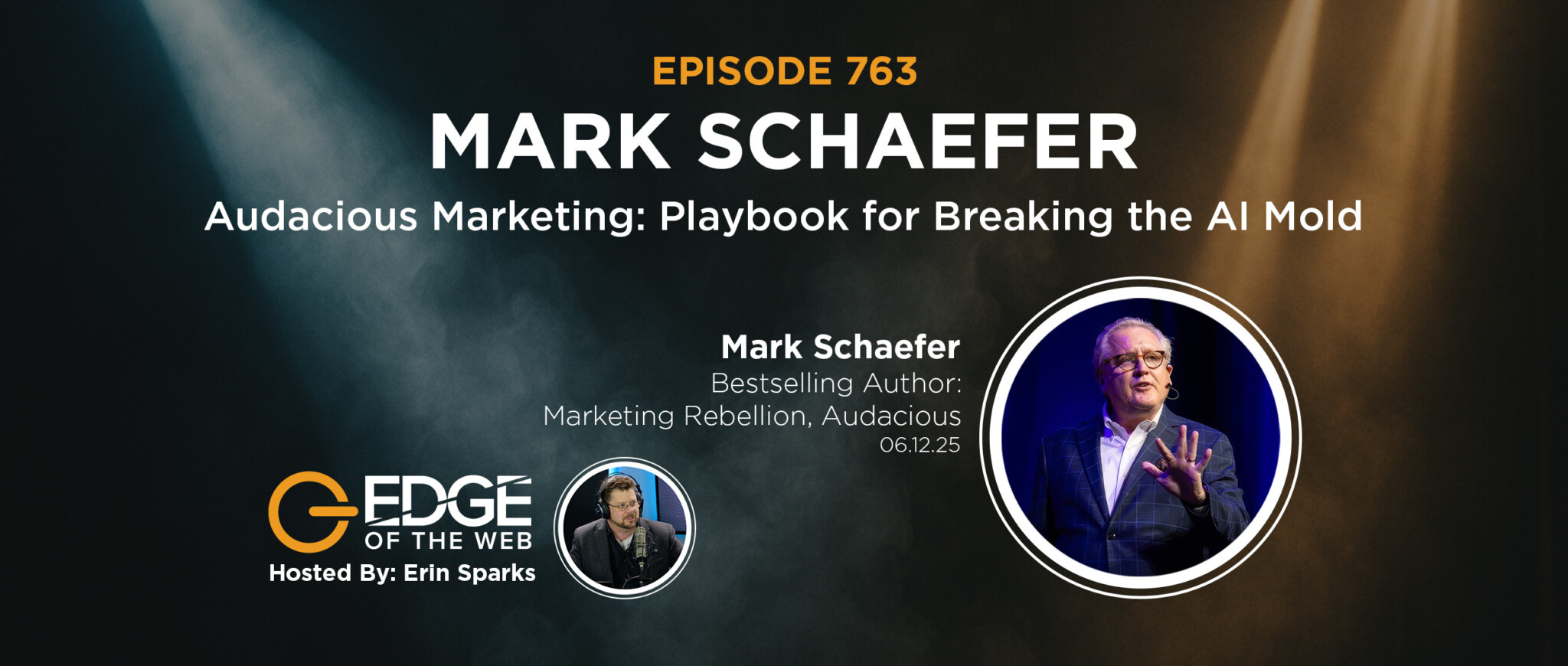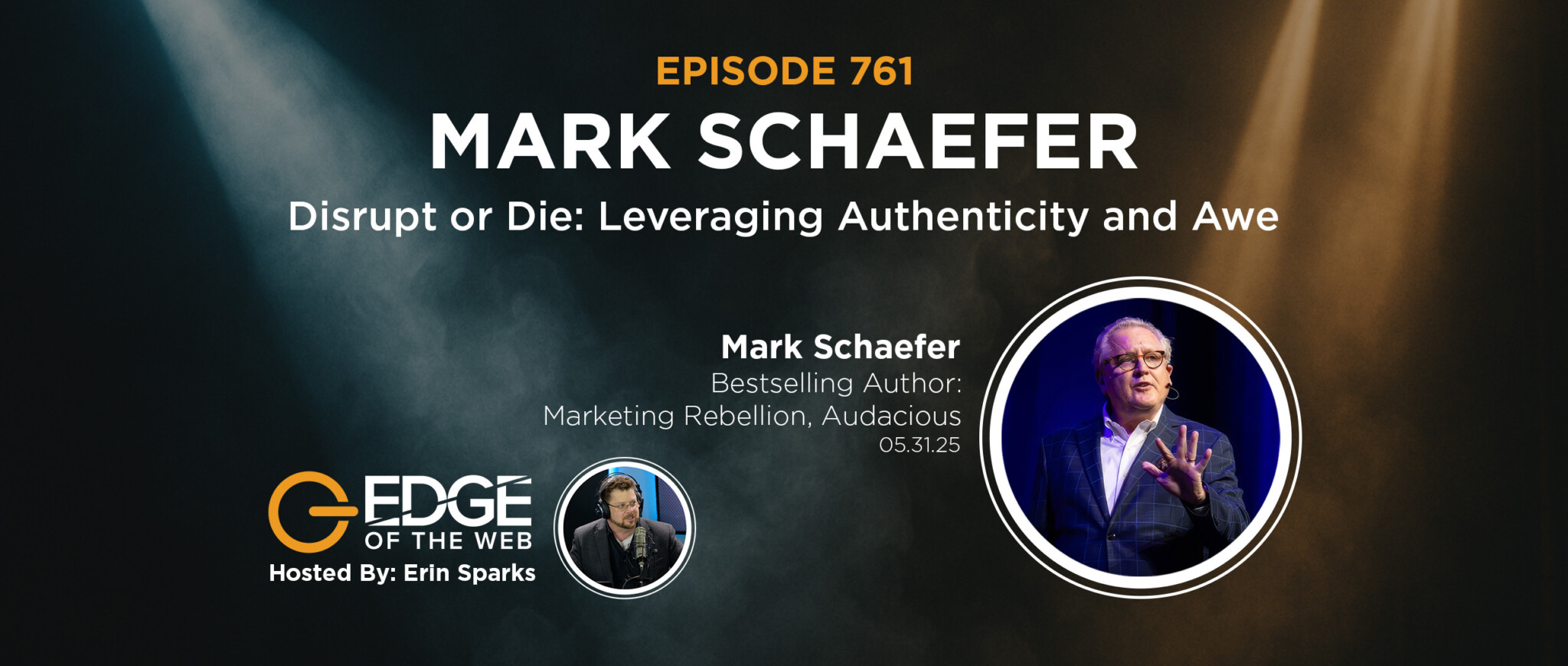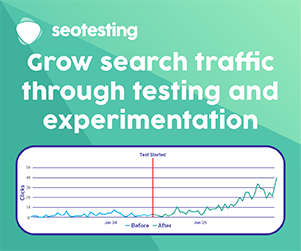Episode 451 of the award-winning EDGE of the Web podcast features host Erin Sparks, SEMRush Head of Communications Mordy Oberstein, and Andrew “Optimisey” Cock-Starkey who is an SEO consultant in the UK and founder of Optimisey. This trio of SEO experts came together in a scrum-style meetup to discuss how Google Search seems to be getting worse and worse in its quest to dominate search at the expense of traffic to the websites that are the sources of the content Google curates. The starting point of this discussion is an article by Mohiuddin Ahmed and Paul Haskell-Dowland published September 9, 2021 on Fast Company titled It’s not just you. Google Search really is getting worse.
Dictionaries now include the word “Google” as a recognized verb meaning to search for something online. Google dominates the web browser market with two-thirds of all browsers being Chrome. It dominates online advertising with Google Ads projected to be 29% of all digital advertising in 2021. Something like 85% of the world’s search engine activity goes through Google while at the same time parent company Alphabet earns more than 80% of its revenue from Google advertising. How is this not a serious conflict of interest? It’s seen on every search with at least the “above-the-fold” (often more) dominated by paid promotions before you get to actual search results!
[00:05:48]
Perspectives on Google Search Domination
Andrew: Google’s domination of search is huge. I especially see it with my kids. It’s inconceivable to them that you might look up a weather forecast in a newspaper or use a dictionary to look up a word. Why would you when you can just Google it? It’s just part of our lives. For content creators, when Google does things with their content they don’t like, what recourse do they have? None, really. They could block Google from using their content, but it would be a death sentence for them, right? It’s Google’s playground and we have to just play in it.
Erin: Yes, and there are some who argue that Google has become so embedded in our daily lives that they shouldn’t even be considered a private company because they’re more like a public utility, which is the source of all the anti-trust sentiment that has been brewing in recent years.
[00:09:40]
Traffic Theft Violations: Can We Ticket Google for Stealing Our Traffic?
Mordy: Let’s take a look at the issue of Google appropriating most if not all the above-the-fold content on the SERP (search engine results page) and the things that it does to keep users on the SERP rather than sending to them to the websites that actually have the content they’re looking for. There are two different ways to look at this using weather.com as an example. Google will show you the weather right on the SERP, which means you can view Google as stealing traffic from weather.com, which is horrible.
But the other way to look at this is from the perspective of user convenience. Why should a user have to click through to weather.com to get the weather when it can just be shown right on the SERP? In other words, some of what Google does is for the sake of its users, not for the sake of content creators. Does that make it wrong? Well, it depends on your perspective, right? For users it makes sense, but for content creators, not so much.
The bigger-picture issue here is when Google switches things up, then content creator expectations for how to rank become misaligned and simply don’t work the way they used to work, which is frustrating for them. This old idea of trying to rank in the top of these high-level, high-volume, top-of-the-funnel kind of queries is not where things are headed in the ecosystem. Content creators need to be more worried about whether the content they’re creating is what people are actually looking for and does it fit with how Google wants to show results.
[00:14:28]
The Evolution of Media Consumption Patterns
Mordy: The people who get upset about Google stealing their traffic are hung up on an old media consumption pattern that doesn’t exist anymore. It’s evolved in a way past that and so you see Google catering to this beyond the SERP features by them trying to throw you towards more specific content all the time.
Erin: The SERP has become increasingly sophisticated in trying to quickly provide the most utilitarian information possible to satisfy user queries. But the way Google is doing it is by grabbing content from websites and repackaging it however it sees fit on the SERP. Have we allowed ourselves to give too much content away to Google? Is Google taking too much content from us?
[00:16:10]
It Feels Like All Take and No Give with Google
Andrew: Yes, for those content creators who provided relatively basic but useful information, they’re losing their traffic to Google because things like weather, time, and so on are going to be shown right on the SERP. But that just means the content creators have to find new and different ways to provide related content their users will find interesting and valuable. But it does raise the question of what is Google? Are they a content aggregator? Are they a content provider? Are they a content curator? Are they a publisher? Supposedly not a publisher, but the line of separation is one that keeps getting thinner and thinner.
If Google is taking a bit of content from site A and content from site B and conflating it and shoving it together in a little thing that pops up at the top of the SERP that has your content but your competitor’s image, well that’s not quite what the content writer had in mind, is it? So now it’s as if Google is stealing your stuff and your ad views and by showing your content on Google’s SERP with Google’s ads, then it definitely feels like we’re getting into a bit of a shady area.
[00:19:44]
Google Blurs the Line Between Ads and Organic Results
Andrew: As people interested in SEO, we’re highly attuned to everything Google does, and every little move they make causes us to run around as if our hair is on fire. Meanwhile, the average person in the street is still going to “just Google it” without a care in the world. But for us SEO types, what’s disturbing is the erosion in the utility of Google because of how ads dominate the SERP.
Erin: Yes, and that came out strongly in a tweet from Ginny Marvin that was placed as a graphic in the Fast Company article. And it shows very clearly over a ten-year span from 2006 to 2016 how what started out as a clear demarcation between ads and organic search results has eroded away to be, for all intents and purposes, non-existent. This means your average Google user has no idea what’s paid ad content and what’s legitimate organic content on the SERP.
Mordy: This is where Google misses the mark in its marketing and optics. They fiddled around with colors associated with what was paid ad content from yellow to green to black to no color at all. This was bad because users as human beings psychologically want the ability to choose. They do not appreciate feeling coerced, forced, tricked, or duped. By taking away the clear demarcation of ad content from organic results, Google has taken away their ability to choose. This may seem relatively small in the bigger scheme of things, and Google does stuff like this because it’s huge and thinks it can get away with it.
But now with the rising tide of anti-trust sentiment toward Google and having to face inquiries from national governments, it’s becoming a very big deal. The perception is now becoming Google is bad, Google is trying to scam us or hurt us, and this shifting of the color demarcation for ads to no demarcation at all feeds directly into that growing negative perception of Google.
[00:26:35]
Google May Just Be Giving Us What We’ve Been Asking For
Erin: Google has been on a constant quest to better understand the user intent of queries, which is why it developed and rolled out BERT (Bidirectional Encoder Representations from Transformers) for better natural language processing. It’s why it is now rolling out MUM (Multitask Unified Model) for processing complex queries without direct answers and bringing up all kinds of different media such as videos or maps and so on in an attempt to better answer queries with information helpful to users. In this sense, Google is only giving us what we ask for, and it’s giving it to us as concisely and compactly as possible to fit in with current media consumption preferences. On the other hand, we content creators are just allowing Google to take our content and present it to people without them ever coming to our websites.
Andrew: I keep circling back to what can be done about it? When someone as wealthy and powerful as Bill Gates and a company as big as Microsoft create the Bing search engine and years later Bing is little more than a tick on the side Google, it all feels rather pointless, especially when you realize the person in the street doesn’t know or care anything about any of it.
But the assumption that Google is such a behemoth that nothing can be done about it is not true. Seismic shifts can and do happen, but they take time. Slack, Trello, and Zoom were complete nothings five or ten years ago but now everyone uses them. Big shifts can happen. The rising anti-trust sentiment against Google is something that could force a tipping point for a web browser or a search engine that does things differently, whether it’s Bing, or DuckDuckGo, or this new interesting model called Brave. It could happen. Google thinks it’s untouchable, but it’s not and it’s dangerous for it to think it is invulnerable.
[00:29:45]
Is it Finally Time to Replace Google?
If Google were to be replaced, would it be by one company or would it have to be replaced by multiple companies?
Andrew: The average person doesn’t even realize that something as big as YouTube is actually part of Google. Google is massive but most people don’t understand how huge it is, or that all the ad revenue generated from YouTube flows into Google. In fact, a lot of people just assume whenever they’re searching for something they must be using Google without realizing that using the Microsoft Edge browser means you’re probably defaulting to Bing for your search engine. But all those details are lost on most people. But yes, no one company could replace Google. It would have to be death by a thousand cuts, one company to take over search, one to take over web browser, one to take over a video platform to replace YouTube, and so on.
Erin: The enormity of replacing Google is hard to fathom. The plain fact of the matter is people are addicted to Google. People like the personalized search, the shopping experience, the information Google provides. People like what Google delivers, plain and simple. It’s going to be enormously difficult to overcome what Google can do at scale because of its size and resources, and especially if people continue to be willing to give away their privacy in exchange for the content they deliver.
Mordy: What choice do we have? We’re caught between a rock and a hard place. There are no viable alternatives. But here’s where it starts to break down for Google. They want to provide the user with the most specific information the user wants, but they still can’t really do it. But they keep trying, and that’s why we’ve been seeing all the different changes to the SERP with the search refinement options and the filtering options and now the rollout of MUM. But they all fail to some extent because Google in the end still doesn’t know exactly what each user wants, despite all its efforts to understand user query intent. But to the extent that they can, it’s going to make the SERP more personalized and guess what, people are going to like that!
Erin: It’s like the SERP is becoming a personal website just for the user that Google builds instantly by curating and aggregating (i.e., stealing) content from multiple sites and content creators. We content creators are going to have to find a different way to reach and interact with people.
Mordy: Content creators have to anticipate what it is their users need in terms of all their possible and potential problems and you have to address all of them so Google can see you’ve got it and can lift it and put it on the SERP.
Andrew: So, to answer the question, is Google getting worse? To the person on the street the answer is no. Is Google going anyplace anytime soon? No. If I were going to buy stock in a search engine and the choices were Bing or Google, I would certainty buy stock in Google over Bing. But Google has overstepped, and the tide could turn against them.






















